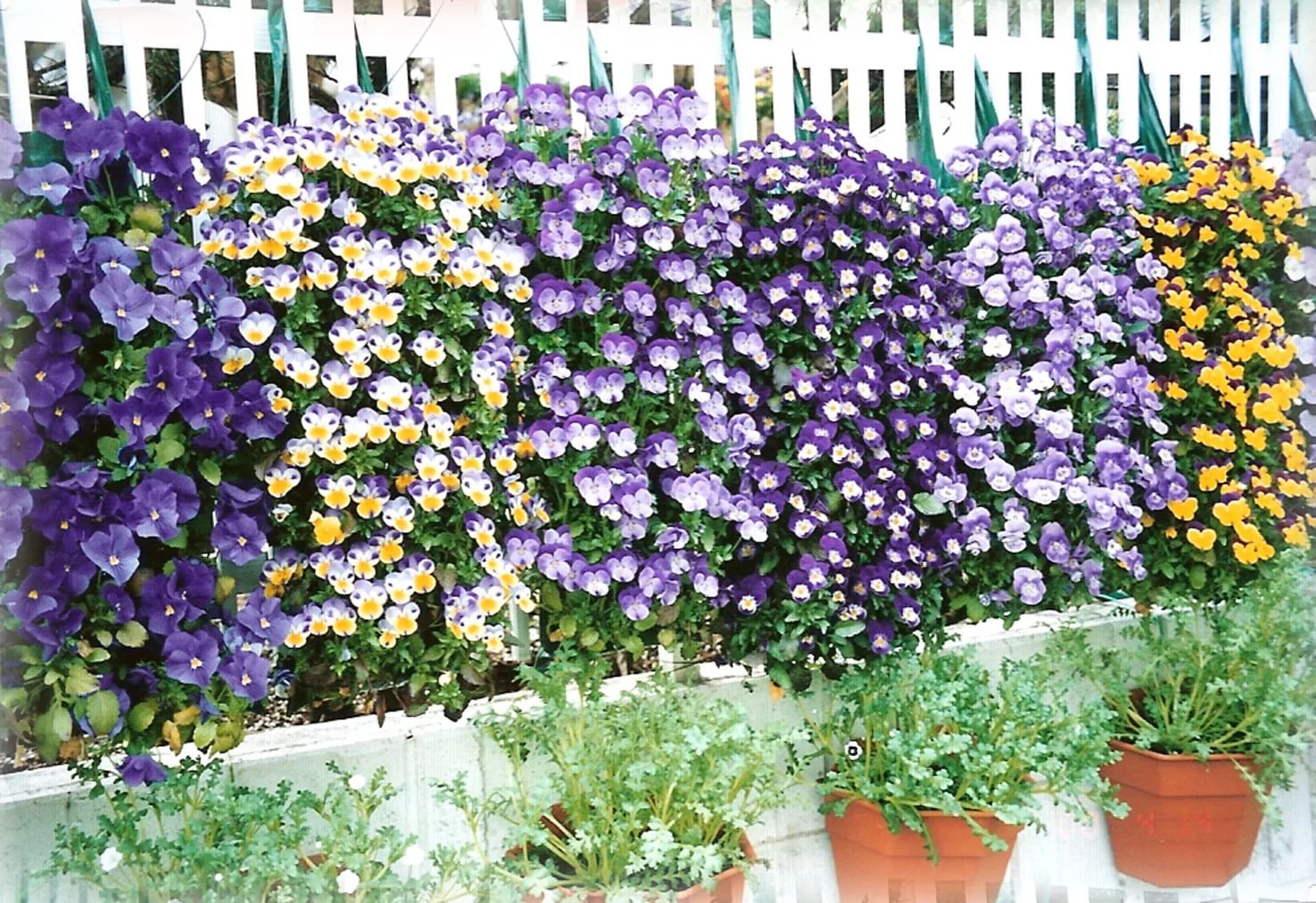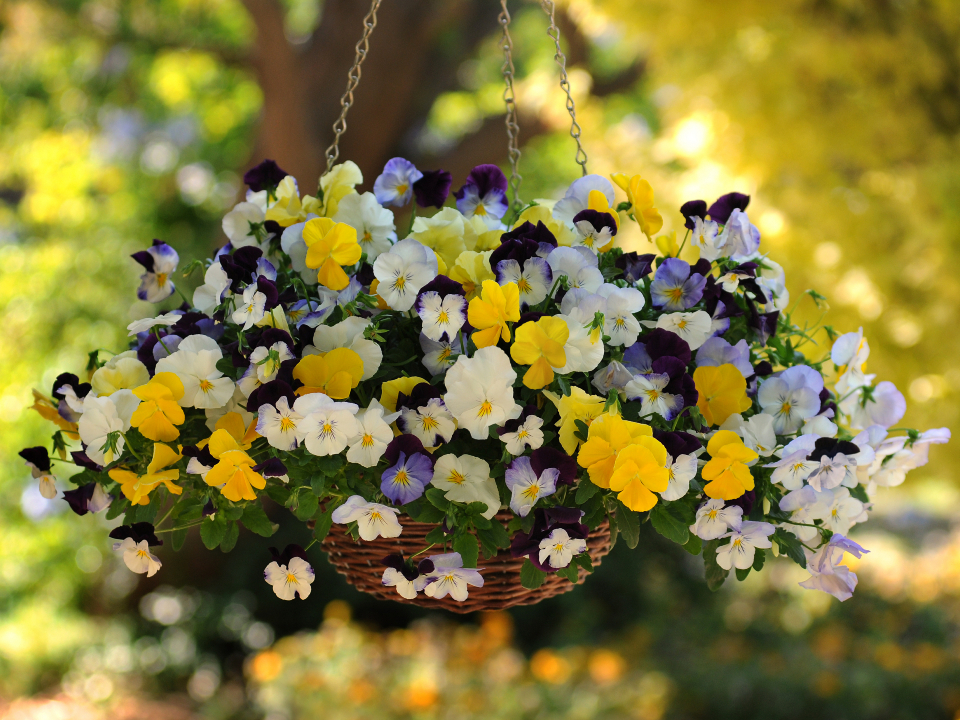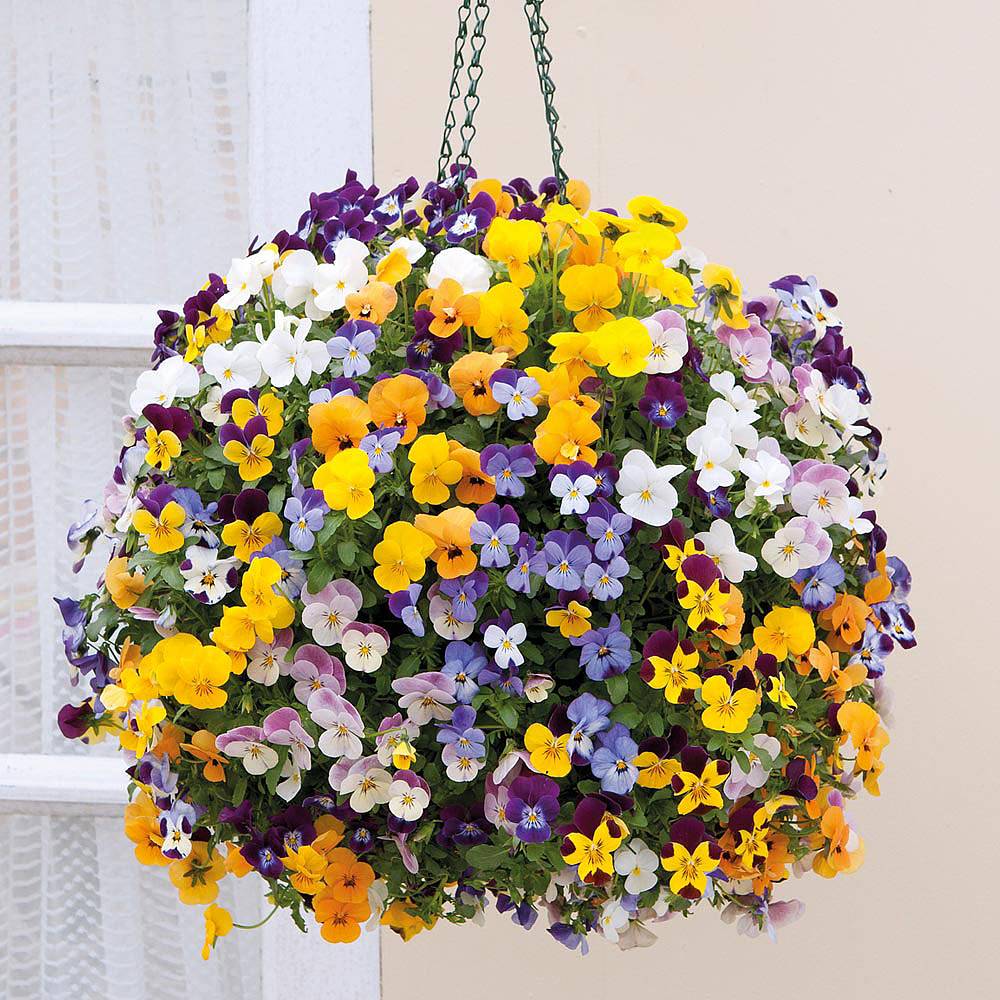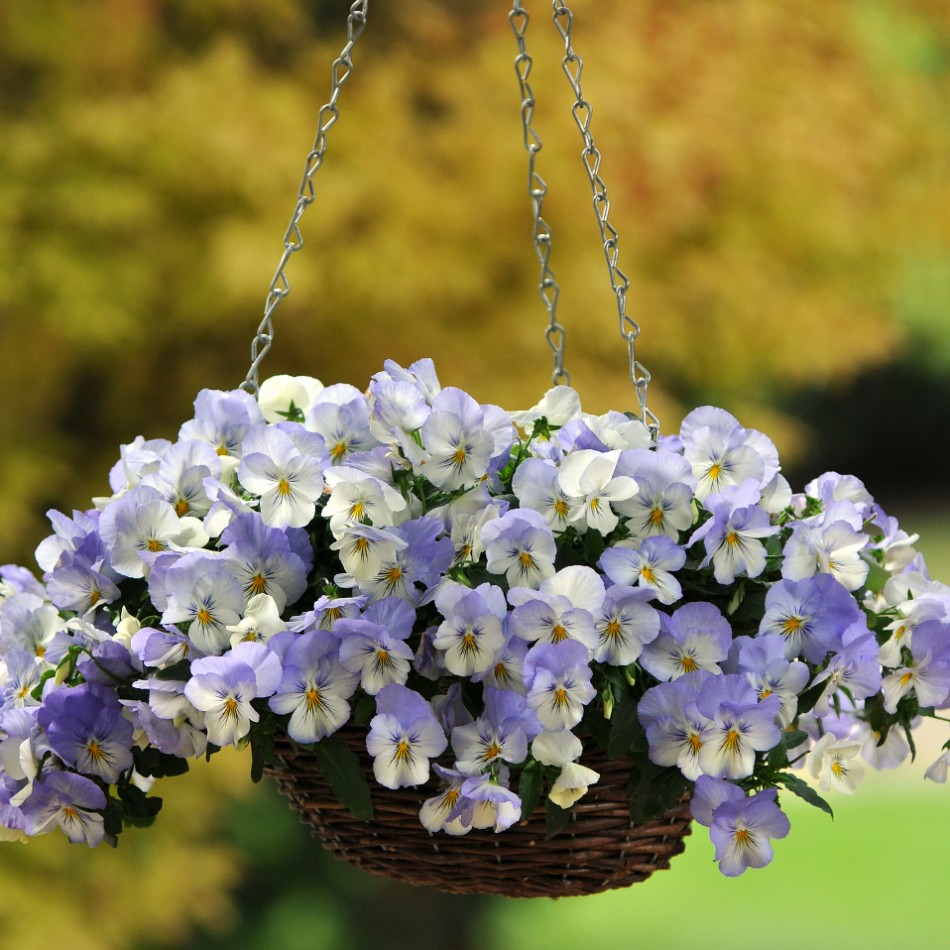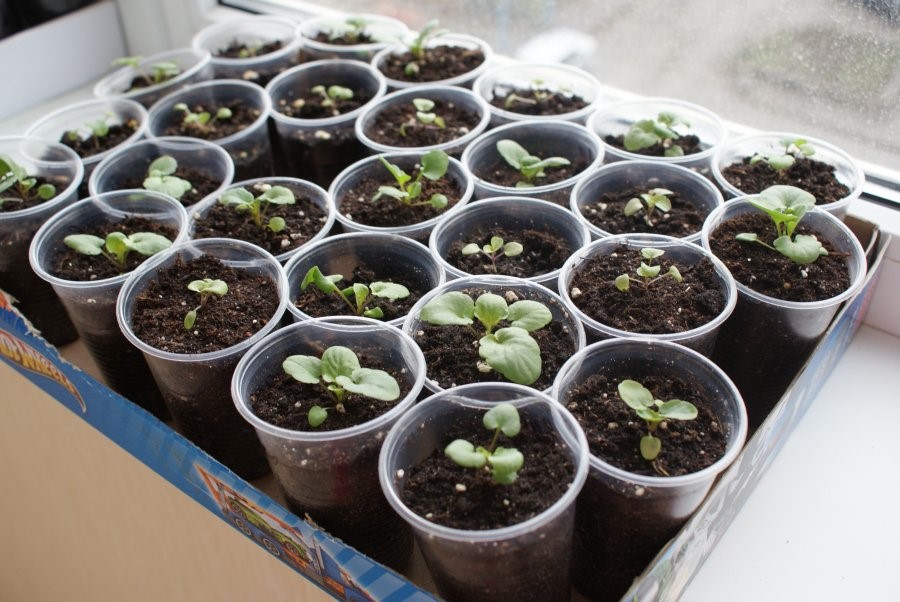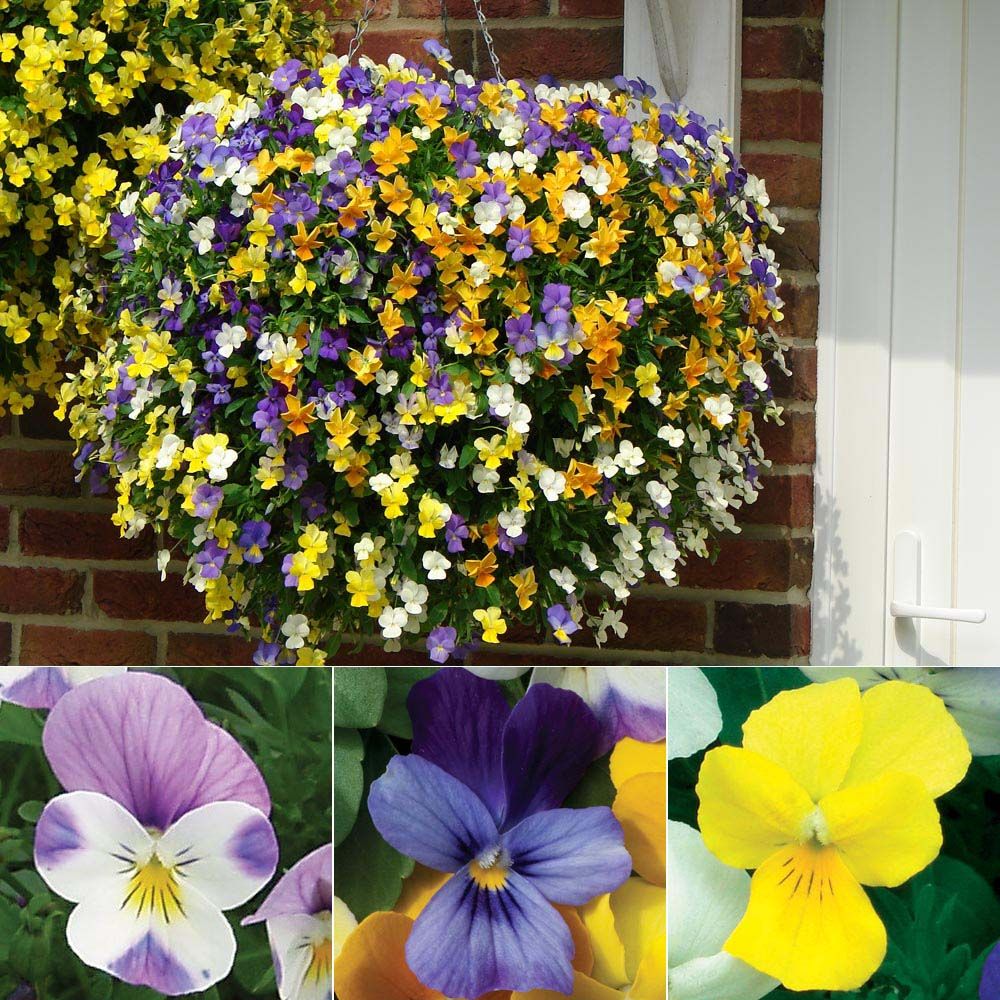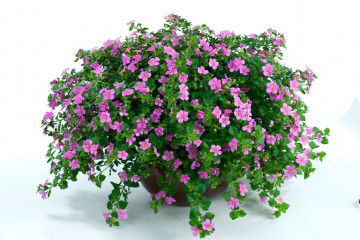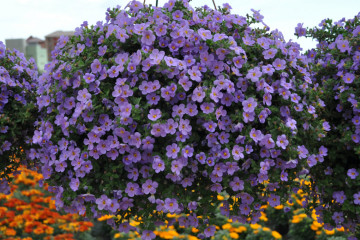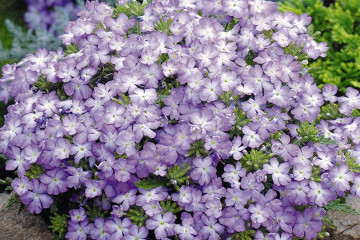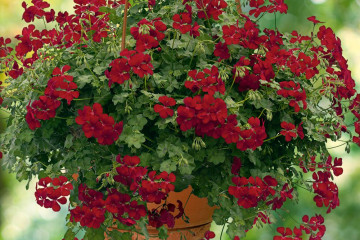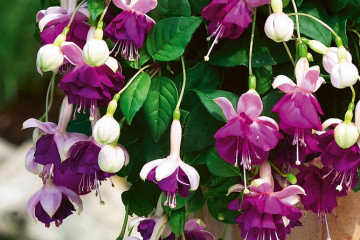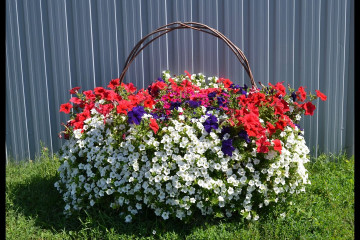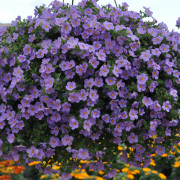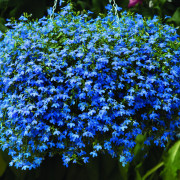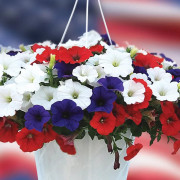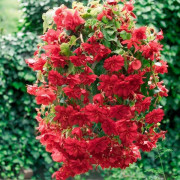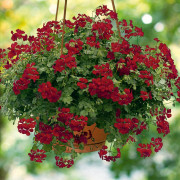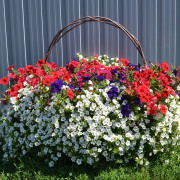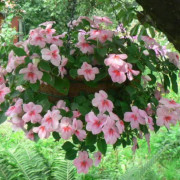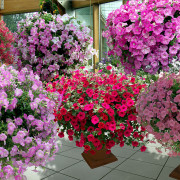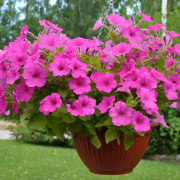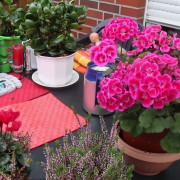Viola ampelous or pansies - growing and care
Content:
There are many reasons why the ampelous viola has become very popular in recent years. First of all, this is its bright unusual appearance, which is able to please any connoisseur of beauty. In addition, it is very easy to care for this plant, it is quite unpretentious and suitable for novice florists, as well as for people who are busy with work, but who want to give their balcony / veranda / summer cottage more brightness and beauty.
Viola ampelous, or horned (pansies)
Horned viola (ampelous) is most often an annual plant. In some cases, it retains its viability in the second year. Distinctive features of the plant are:
- spherical bush;
- shoots from 40 to 60 cm;
- flowers with a diameter of 4 cm (it all depends on the specific variety);
- small height - about 20 cm;
- narrow ovoid or oval leaves;
- long flowering period - from late spring to the beginning of frost;
- bright color. It can be either plain or different colors.
This plant can be found in almost every garden plot, it is loved by all gardeners.
Ampel viola in a flowerpot
Ampel pansies have a straight, stable shape only at the initial stage of development, after their stems begin to fall. Therefore, the best option for planting them is growing in pots or decorative baskets. It is not difficult to take care of it, the pots can be hung out on the street, immediately after the threat of spring frosts has passed.
Varieties of ampelous viola
To date, many varieties of ampelous viola have been bred. Growing them is not difficult and even pleasant. The size of the flowers, their various colors, indescribable aroma, rather wide bushes - all this will allow you to create a real greenhouse on your balcony for the whole summer.
Cool Wave Mix Impruvd
This variety is considered the most popular among others due to its resistance to temperature changes, brightness and a variety of colors, splendor and unpretentiousness.
Cool Wave Mix Impruvd features:
- height 15-20 cm, length of shoots up to 60 cm;
- flower diameter - 5 cm;
- bright, interesting, very decorative colors;
- intense flowering over a long period of time;
- high tolerance to adverse natural conditions.
This plant will ideally fit into the interior of balconies, open verandas, patios, and decorate any flower slide. It always blooms with an abundant large waterfall, which is impossible not to pay attention to.
Old Spice Mix
An interesting variety of ampelous viola, before the beauty and aroma of which more than one admirer of beauty cannot resist. Viola Spice characteristics:
- compactness. Narrow bushes, the diameter of which reaches 30 cm;
- long shoots with flowers of various colors;
- each flower in the mix has a separate, indescribable aroma;
- the flowers are edible. They can be used to decorate salads or desserts. Nowadays, such jewelry is very popular.
Do not plant this variety in a place that is too sunny. Under the scorching rays of the summer sun, the flowers of the plant become small. Better to provide them with partial shade.
Hederacea ampelous
The homeland of viola hederacea ampelous is Australia. Quite quickly, this variety spread throughout the United States, Europe and Russia. It is not the most popular variety, but is suitable for those who do not like bright, provocative colors.
The flowers of the plant are not large, with a diameter of about 4 cm. Most often they have a delicate lavender color. It stands out with large, bright green (outside) leaves. Hederacea is unpretentious, it can be planted on the street after the threat of frost has passed.
Growing ampelous viola
It doesn't take much to grow ampelous pansies, but you should pay attention to some parameters that will contribute to a successful result:
- for planting, you should choose a loamy loose soil with a neutral level of acidity;
- regular watering should be carried out, but stagnation of water in the pan of the pot should not be allowed;
- to grow a beautiful plant at home, you should choose the east or west sides of the window;
- pansies do not like any fertilizers, so this point in caring for them can be safely omitted.
Growing from seeds
Growing from seed is the only way to prepare this flower for development in the Russian climate. Seeds for seedlings are planted in late February - early March. Special boxes will become the basis for seedlings, plastic cups or jars of yogurt will also do.
How to plant seeds:
- Moisten the soil. Make 5 mm depressions in it every 2 cm. Put the seeds there.
- Sprinkle with a layer of soil, cover with foil or glass. Put in a warm place.
- Daily morning and evening for 10 min. lift the film to ventilate the ground.
- When the first two leaves appear, carry out the first feeding with mineral fertilizers. Subsequently, perform this procedure once a month.
- A month after the emergence of shoots, young plants should be dived into separate small containers.
- In order for seedlings to appear earlier, you can use special fluorescent lamps. The optimal day length is 14 hours.
Watering mode
Viola ampelous does not tolerate complete drying of the soil, it needs regular watering. It is necessary to water it as the top layer of the soil dries up. The soil in the pot should always be moist, but without excess. You should not turn a pots with a plant into an analogue of a swamp, with an excess of moisture, the roots of the plant will begin to rot, and it may die.
Top dressing
Intensive feeding of the plant with mineral fertilizers should be carried out during the period of growth and development. During the flowering period, it is enough to carry out correct watering and make sure that the plant is not exposed to direct sunlight for a long time. But there is another version that the plant needs weekly feeding. It all depends on the individual characteristics of the selected variety, as well as on the growing region and climatic conditions.
In any case, if the flowers are missing something, it will be immediately visible from them: the leaves will become more sluggish, and the buds will be smaller. This is what you should be guided by.
Planting in pots
Growing viola at home involves planting it in flower pots, pots, wicker baskets, balcony boxes. Whichever container is planted in, it should be equipped with drainage holes that will help avoid stagnant moisture.
Initially, a layer of drainage material is poured onto the bottom of the container in which the pansies will grow. This is very important as the roots of the plant can rot. The minimum thickness of the drainage cover is 3 cm. A suitable soil is poured on top. Viola seedlings must be separated from each other by at least 10-15 cm, while 1-2 liters of soil should be allocated for each separate bush.
Adult plant care
Adult pansies do not need excessive grooming. Watering and lighting should be the main components. It is also important to ensure that the plant does not get sick. The most common diseases are:
- powdery mildew;
- spotting;
- gray rot.
If signs of any of these diseases are found, it should be removed immediately so that the others do not become infected. For prevention, you can periodically spray with a mixture of soda ash and laundry soap or sprinkle with wood ash.
Illumination
This point is just as important for plants as watering. Viola ampelous is a light-loving plant, which, nevertheless, does not tolerate prolonged exposure to the bright rays of the sun. She needs light partial shade. A good option would be one in which pansies are grown under a small canopy or canopy.
Watering and fertilizing
Watering and feeding the plant must be done carefully, without pouring out a large amount of liquid into one place. It is worth starting from the edge of the vessel in which the plant grows and gradually moving to the middle. Only mineral fertilizers are suitable for feeding, organic fertilizers are categorically contraindicated. It is best to use ready-to-use flowering plant mixes available from horticultural and flower shops. It is better to carry out these procedures in the evening, when there is no risk that the sun can burn out the earth or leaves on which top dressing accidentally falls.
Viola ampelnaya is one of the most beautiful plants that can be grown both in the summer cottage and on the balcony. It is suitable for any grower due to its many varieties. Someone will like bright, large flowers, while others are closer to delicate, almost pearl-colored colors. Everyone will find their own variety, close to him.
